
Illinois’ ‘F’ grade leaves taxpayers on the hook for billions, watchdog says
(The Center Square) – Budget gimmicks, pension debt and late financial reports are leaving Illinois taxpayers in the dark, according to Truth in Accounting which gives Illinois another “F” grade.
Sheila Weinberg, founder and CEO of Truth in Accounting, said Illinois leaders continue to rely on “political math” to claim balanced budgets while debt quietly piles up.
“Illinois has a balanced budget requirement, but it all depends on how you count,” Weinberg said. “They use political math to pretend their budget is balanced while they’re putting the state in debt.”
Truth in Accounting’s Financial State of the States report found Illinois taxpayers now carry an average burden of $38,800 each, the third-worst in the nation. The report ranks Illinois 48th overall, with only Connecticut and New Jersey faring worse.
Weinberg said the state’s “balanced budget” claims by Gov. J.B. Pritzker and his predecessors mislead voters and distort fiscal reality.
“The governor continually says, ‘Hey, we balance our budget,’ and sometimes even claims surpluses,” Weinberg said. “This gives people a false sense of the true financial condition of the government.”
Illinois also earned the worst ranking in the nation for unfunded pension liabilities. According to Truth in Accounting, the state has only 43 cents set aside for every dollar it has promised in pension benefits.
Weinberg noted that the state is actually underfunding pensions by $5 to $6 billion annually. On top of that, Illinois owes $21.7 billion in retiree health care benefits, which the state’s Supreme Court has deemed constitutionally guaranteed, yet the state continues to leave these obligations entirely unfunded.
“They don’t put any money aside for retiree health care,” Weinberg said. “They’ve promised workers that much money, but they’re not funding it at all.”
Truth in Accounting also raised alarms about the state’s delayed financial reporting. Illinois issued its 2023 financial report 769 days after the fiscal year ended, more than two years late.
“Taxpayers don’t have the information they need to hold elected officials accountable,” Weinberg said. “Even the officials themselves are making budget decisions based on outdated or incomplete information.”
Weinberg also warned that Illinois has become increasingly reliant on federal money since the pandemic. During COVID-19, federal aid to states doubled from $750 billion to $1.5 trillion. Even as aid declined to $1.2 trillion in 2024, Weinberg said Illinois remains dangerously dependent.
“If Illinois’ federal aid went back to 2019 levels, even adjusted for inflation, the state would lose $1.6 billion, about 15% of its primary government expenses,” Weinberg said. “That would be a huge hit to the budget if Washington returns to historic levels.”
Despite its weak fiscal position, Illinois has seen improved credit ratings in recent years. But Weinberg warned that a higher bond rating doesn’t mean the state is financially healthy.
“Most people think a credit rating is a grade for how well the state is managing its money,” she said. “It’s not. It’s just about whether the bonds will get paid, and by law, Illinois pays bonds with the first dollar of tax revenue coming in.”
Weinberg said the state’s decision to pour billions into a “rainy day fund” instead of addressing pension debt helped its credit score but did little to fix long-term problems.
“It’s like having hundreds of thousands in credit card debt and deciding to put money into your savings account instead of paying the minimum,” she said. “That might impress your banker, but it doesn’t change your real financial situation.”
Latest News Stories

Jackson Township Refers Manure-to-Gas Plant Proposal to Planning Commission
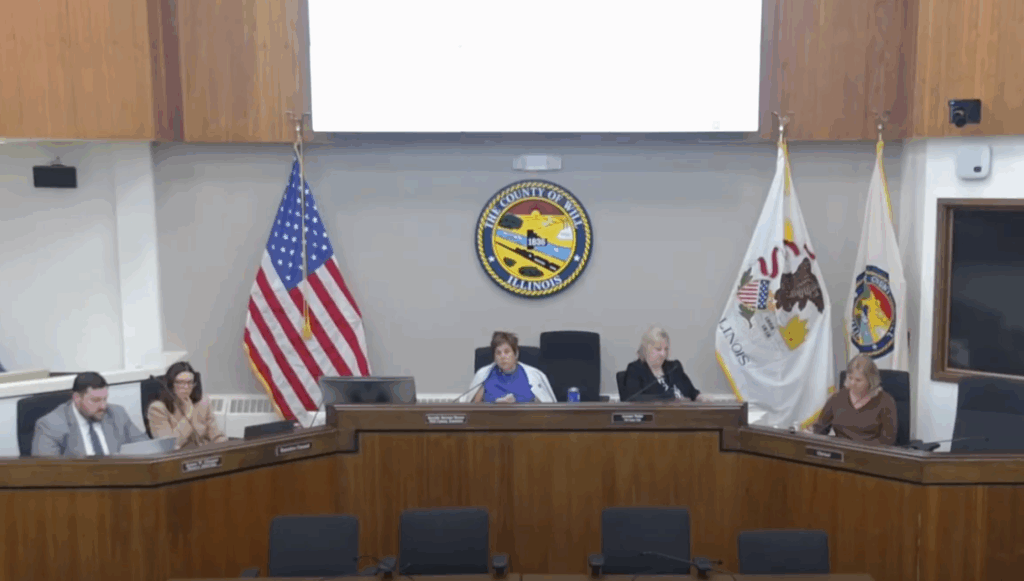
County Board Abates Over $25 Million in Property Taxes for Bond Payments

School Board Approves ‘Board Book Premier’ for Paperless Meetings
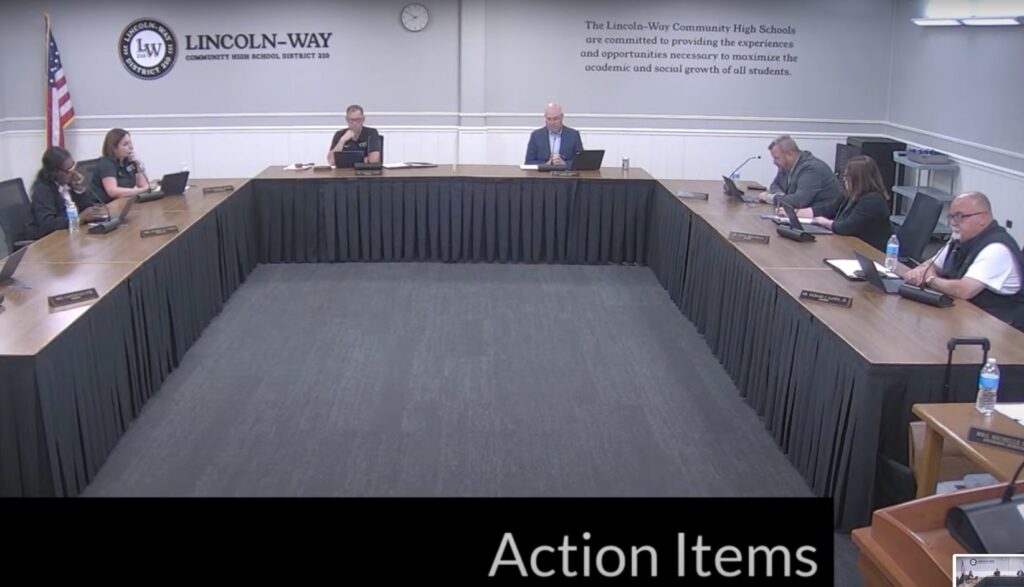
Lincoln-Way 210 Prepares for “Retirement Wave” with Focus on Recruitment

District 114 to Overhaul Policy Updates with New ‘Press Plus’ Service

Lincoln-Way Board Weighs Community Solar Program Promising $155,000 in Annual Savings
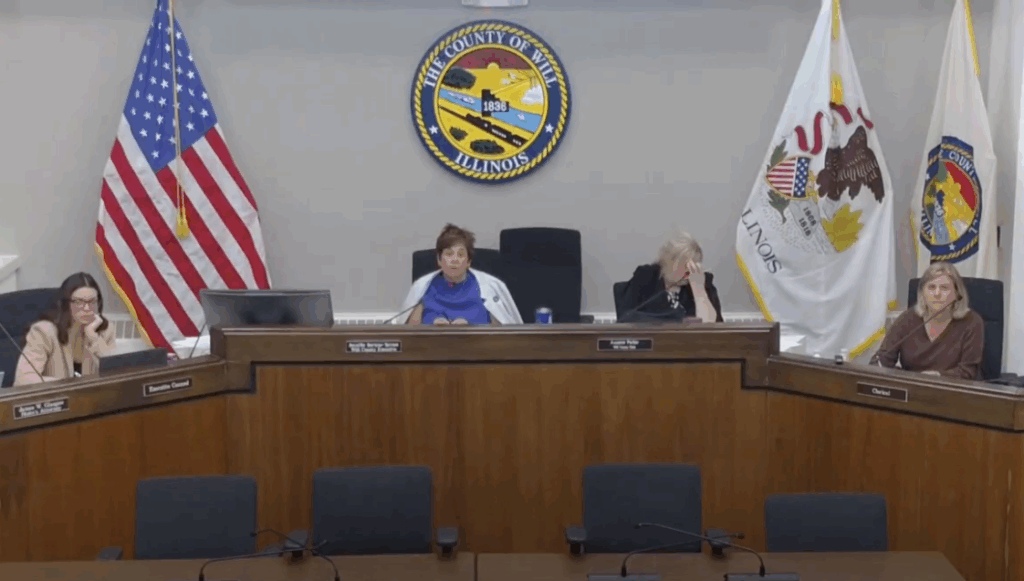
Will County Reverses Zoning on Peotone Farmland to Facilitate 10-Acre Sale

Meeting Summary and Briefs: Joliet Junior College Board of Trustees for September 10, 2025

Manhattan Park Board Hires New Architect for Round Barn Buildout, Secures Annexation for Future Banquet Hall
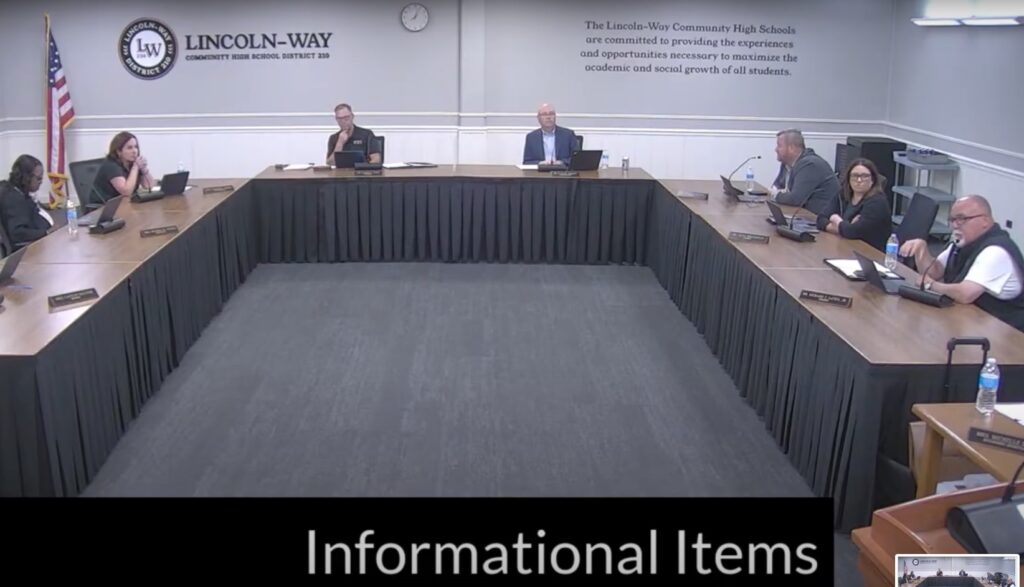
Lincoln-Way 210 Board Approves $172.7 Million Budget with Planned Deficit for Bus Purchases
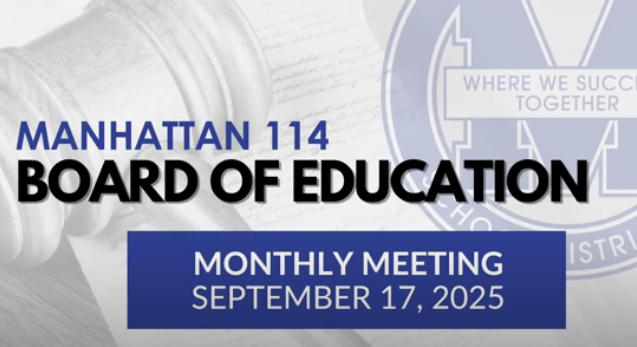
Manhattan School District 114 Approves $41.5 Million Budget for FY26

Manhattan Fire District Advances New Station with $8.75M Bond Hearing, Approves Contracts with $194,000 Savings

Will County to Pay Enbridge $82,000 to Relocate Pipeline Equipment for Exchange Street Improvements

Laraway Road Widening Project in New Lenox and Frankfort Gets Additional $468,000 for Redesign
